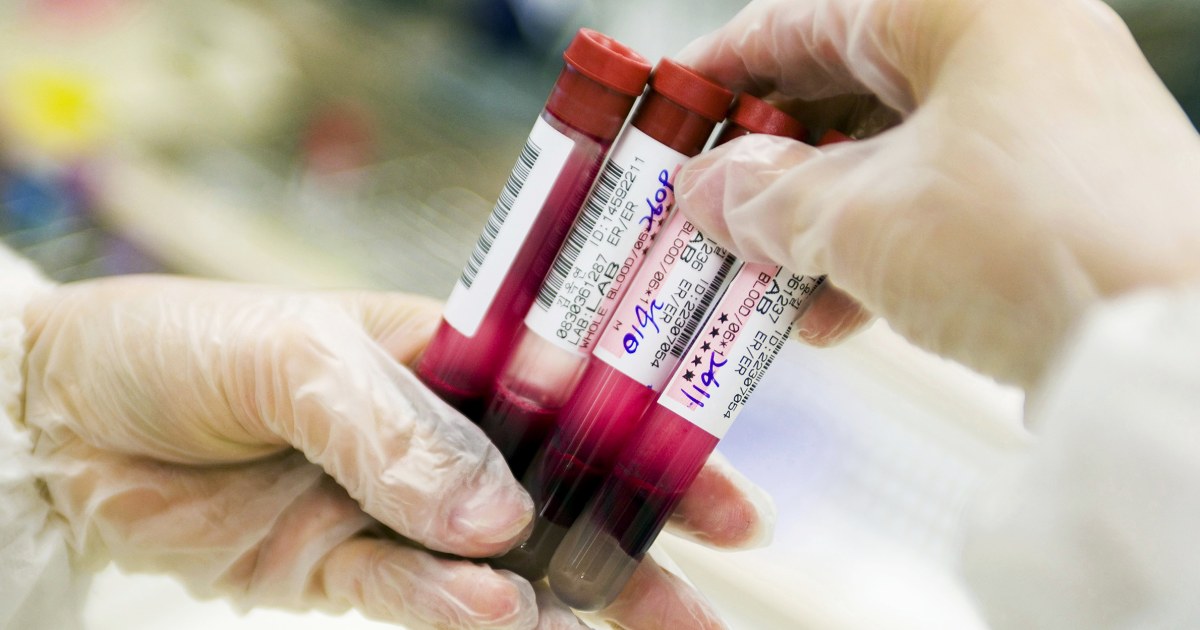Statin drugs are the gold standard when it comes to lowering LDL or «bad» cholesterol, but many patients at risk for heart disease refuse to take them because of serious side effects, such as muscle pain or weakness.
An alternative drug, bempedoic acid, significantly lowers cholesterol and the risk of heart attacks, as well as reducing the need for a procedure that unblocks clogged arteries, according to a large clinical trial presented Saturday at the annual meeting of the American College of Cardiology. . The research was published Saturday in the New England Journal of Medicine.
«Statins are the cornerstone of cardiovascular disease prevention and are recommended for a large number of people who have or are at risk of cardiovascular disease,» said study lead author Dr. Steven E. Nissen, director of the study. scholar at the Cleveland Clinic Heart and Vascular Institute. “Between 7% and 29% of patients experience adverse effects that they cannot tolerate. The main problem is muscle pain.”
These patients won’t do well if they can’t lower their cholesterol, Nissen said. Bempedoic does not cause muscle side effects because it is not activated in muscle or other tissues in the body, she explained. Until the drug reaches the liver, it is not activated at all.
LDL, or low-density lipoprotein, cholesterol contributes to the buildup of fat in the arteries, which increases the risk of heart attacks and strokes. Lowering LDL is an important way to protect against heart disease, the leading cause of death for men and women in the United States. According to the American Heart Associationthe optimal total cholesterol level for an adult is approximately 150 mg/dL, with LDL levels of 100 mg/dL or less.
Bempedoic acid, which is already approved by the Food and Drug Administration, has previously been shown to lower cholesterol when used in combination with statins.
In the new trial, Nissen and his colleagues recruited 13,970 patients who could not tolerate statins and randomly assigned them to receive a daily dose of bempedoic acid or a placebo. At the start, the patients’ average LDL cholesterol level was 139.0.
At the end of six months, LDL cholesterol levels had dropped by 29.2 points. By the end of the follow-up period, which lasted a median of 40.6 months, the risk of heart attacks among patients who received the drug had been reduced by 23%, while the risk of needing cardiac revascularization (the procedure to clear arteries) was cut in 19%.
There was a small increased risk of complications, such as gout and gallstones, in patients who received the drug compared to those who received placebos.
The researchers found that, compared with people in the placebo group, patients who took bempedoic acid had a combined 13% lower risk of death from cardiovascular disease, nonfatal strokes, and nonfatal heart attacks.
Rather than simply focusing on cholesterol levels, the researchers looked for data that might be more meaningful to patients — for example, the risk of heart attacks, which Nissen hopes will encourage more patients to take a cholesterol-lowering drug.
Esperion, the company that makes and markets bempedoic acid, sells it alone or along with a second cholesterol-lowering medication called ezetimibe. Both versions are priced at $395 per month, said Dr. JoAnne Foody, a cardiologist and Esperion’s chief medical officer.
“We are not looking to supplant statins,” Foody said. “They are the first-line therapy. Anyone who can take statins should do so.»
Bempedoic acid may not be as effective as statins, but it could be a life-saving drug for people at risk for cardiovascular disease but who can’t or won’t take statins, said Dr. Howard Weintraub, clinical director of the Center for the Prevention of Cardiovascular Diseases in the Leon H. Cheney Division of Cardiology at NYU Langone Health.
Dr. Marc Eisenberg welcomed the new research.
«This is an exciting study, but at this time statins remain the best treatment for most people with high cholesterol and cardiovascular risk factors,» said Eisenberg, a cardiologist and associate professor of medicine in the College of Physicians and Surgeons. Vagelos from Columbia University.
«Further studies comparing bempedoic acid and established drugs such as statins and ezetimibe in head-to-head trials will be very helpful in the future,» Eisenberg said in an email.
Dr. Robert Rosenson cautioned against doctors and patients who view bempedoic as equivalent to statins.
«Bempedoic acid is not a replacement for statin therapy,» said Rosenson, a professor of medicine at the Icahn School of Medicine at Mount Sinai in New York. «The efficacy in lowering LDL and reductions in cardiovascular events were modest and less than with statins.»

